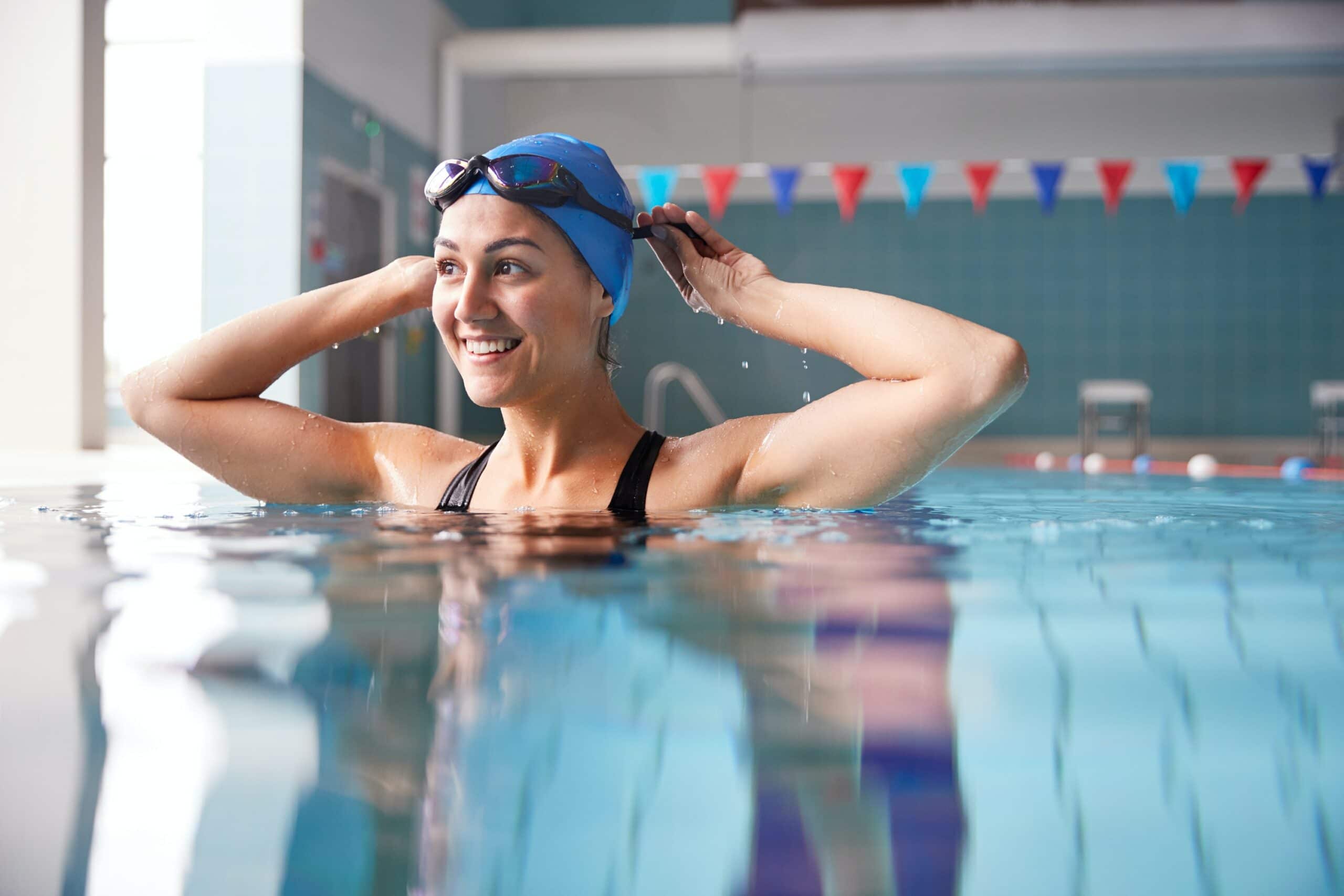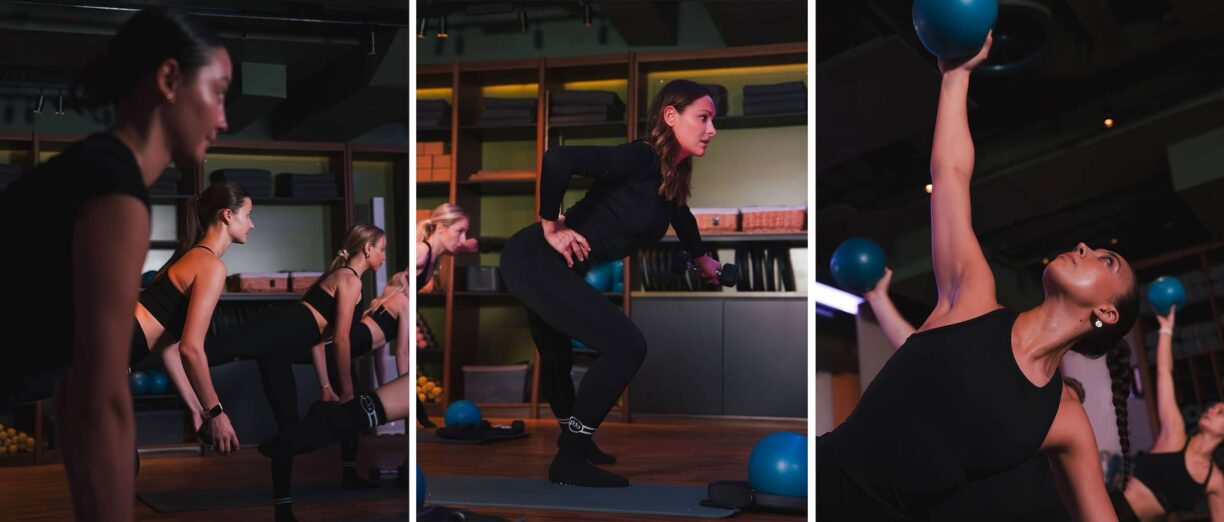If you’re looking for a way to supercharge your fitness after months of repetitive jogging and living-room workouts, once they’re fully open, it might be time to show your local swimming pool some love.
You might not have swum laps since school, but there are plenty of great benefits to taking to the water as an adult.
Swimming is an all-body workout that can leave you not just physically stronger but mentally recharged too; experts say it can soothe stress, boost physical endurance and burn serious calories.
Pools may have been out of bounds for much of the year, but now many are set to open again, it’s the perfect excuse to dig out your goggles and take the plunge.
Not convinced yet? Here are just some of the brilliant benefits of swimming…
1. Swimming is low-impact on your joints
Experts recommend 150 minutes of moderate exercise per week, and swimming is a great all-rounder with multiple health benefits – no matter your age, physical ability or fitness level.

“It’s particularly helpful if you experience joint pain in your knees,” says LloydsPharmacy pharmacist Anshu Kaura (lloydspharmacy.com). “The water supports your body, meaning there is less impact on the skeletal system, including joints.
Gentle swimming or water aerobics can also help strengthen muscles around your joints, reducing the impact of aches and pains over time.
Kaura adds that not only is swimming a great low-impact option, but strengthening your muscles can help reduce the degenerative impact of joint pain in the future. “Warm pools are particularly beneficial,” she adds, “as the heat can help loosen stiff joints, supporting flexibility.”
2. Swimming is a whole-body workout
There’s a reason many fit and healthy people get out of breath after just a couple of laps in the pool. “It’s basically an all-round form of exercise, which keeps your heart rate up, improves cardiovascular fitness, as well as building endurance and muscle strength,” says Scott McDougall, co-founder of The Independent Pharmacy (theindependentpharmacy.co.uk).

Swimming utilises nearly all muscles in the body, including often under-worked areas of your arms. Not only does it engage your legs, which need to kick to propel you forward, it also recruits your core strength, and the lats, deltoids and traps.
“Swimming is unique, as alternating between different strokes lets you target specific muscle groups with your swimming workout,” adds McDougall.
Think of the water like your own personal gym. Unlike other popular forms of exercise like running and cycling, where there’s little variety, with swimming you can potentially pick different strokes to influence the intensity and focus of your sessions.
3. What are the mental benefits of swimming
We all know exercise-induced endorphins can help blitz away stress, but simply being in the water can have its own restorative benefits.
A recent YouGov poll commissioned by Swim England found almost half a million British adults with mental health problems reduced their visits to their GP or therapist as a result of regular swimming.

When asked about the impact of swimming on their day-to-day life, 43% of regular swimmers in the survey said it makes them feel happier, while 26% feel more motivated to complete tasks, and 15% believe life feels more manageable.
It’s thought that being in water can help ease sensory overload on our nervous system, helping to promote feelings of calm and relaxation, according to a study published in the Journal of Pain Research last year.
4. It supports weight management
“Swimming can help you to maintain a healthy weight, or lose weight as part of a wider plan,” says McDougall. “In fact, you can expect to burn around 200-400 calories per half-hour of swimming, depending on your speed, stroke and weight.”

Butterfly is probably the hardest stroke to learn, but is said to be highly effective (although not always popular with other pool users due to the splashing!).
If you’re new to swimming, it’s a good idea to start off small and build up your swimming levels at a pace that works for you. Even 15-minute sessions of gentle breaststroke can have benefits. If you’re not confident with your stroke, adult swim lessons are available nationwide.
5. Swimming is good for all ages
One of the best things about swimming is that anyone can reap the benefits – and you can keep it up at any age.
Unlike many trendy HIIT workouts that are popular at boutique gyms right now, swimming feels more inclusive to all ages and fitness levels, and you don’t have to be an amateur athlete to enjoy it.

“The bottom line is that regular swimming is great for everyone; studies have found it can help you lead a healthier, longer life and reduce your risk of developing many major health conditions, including heart disease, stroke and type 2 diabetes,” says McDougall.
“It’s very good for those who aren’t particularly active, have injuries or are a bit older. So whatever your fitness level, age or ability, it’s an accessible way to keep fit.”





